Suids are ungulate mammals belonging to the order Even-toed ungulates, and the species Suids belong to the family Suidae. Some examples of Suids are Babyrousa togeanensis, Babyrousa babyrussa, Potamochoerus larvatus, and Porcula salvania.
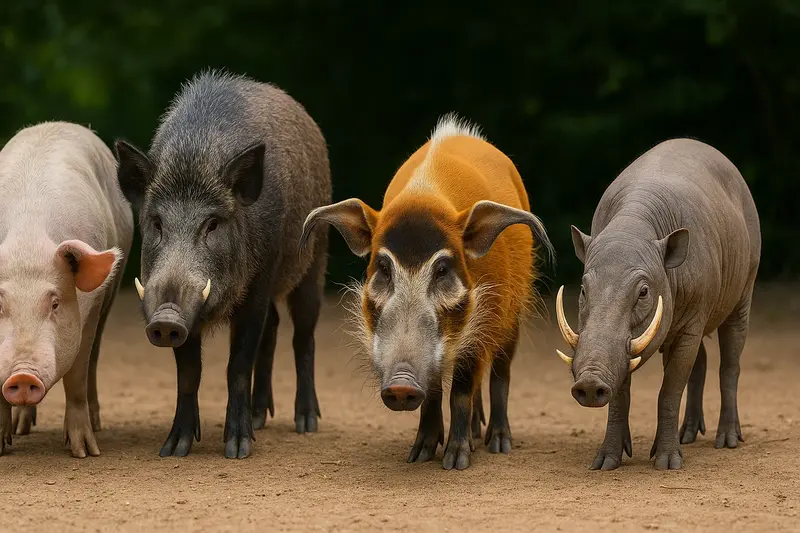
Suids belong to the order Even-toed ungulates, and are characterized by having four hooves on each foot, but they primarily walk using the middle two toes.
Its stomach is simple, unlike the ruminant stomach of other Even-toed ungulates.
They have a large head, a short neck, small eyes, and prominent ears.
They usually have stiff hair and a short tail with a tassel at the end.
They have a well-developed sense of hearing and are vocal animals, communicating through grunts and screams.
They have a keen sense of smell, which helps them find food.
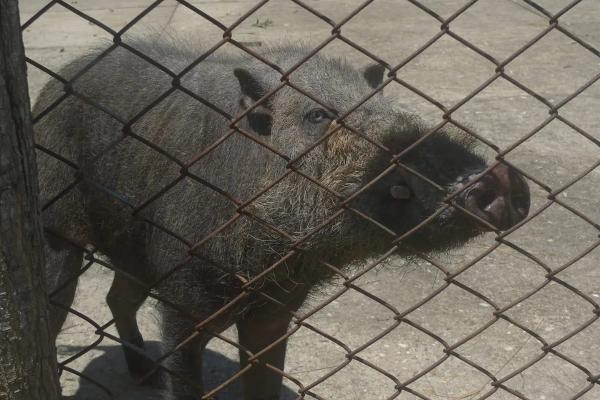
The Palawan Bearded Pig (Sus ahoenobarbus ) is endemic to the Philippines and is found in Balabac, Palawan, and Calamarines. They range in length from 1 to 1.6 meters and can weigh up to 150 kilograms.
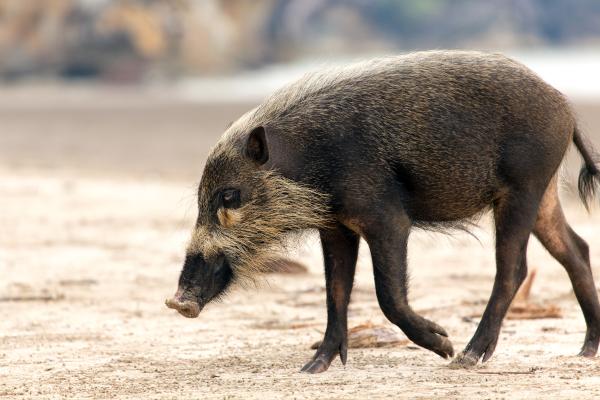
The Borneo Bearded Pig (Sus barbatus) is distinguished by its prominent whiskers and sometimes tail spikes. It lives in Southeast Asia, especially in Sumatra, Borneo, the Malay Peninsula, and the Sulu Archipelago.
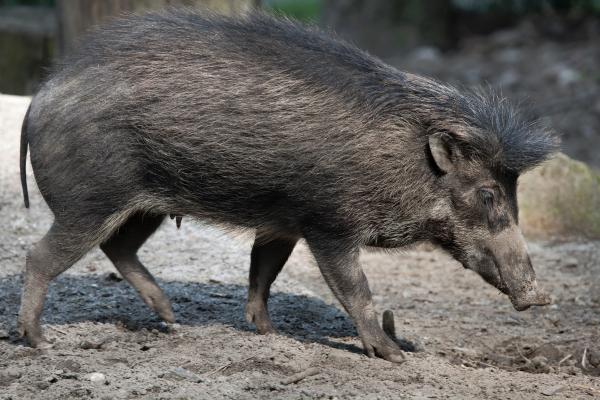
The Visayan Warty Pig (Sus cebifrons ) is a critically endangered species found only in six islands of the Philippines. Its population is mainly found in Negros and Panay, and is believed to be extinct on other islands.
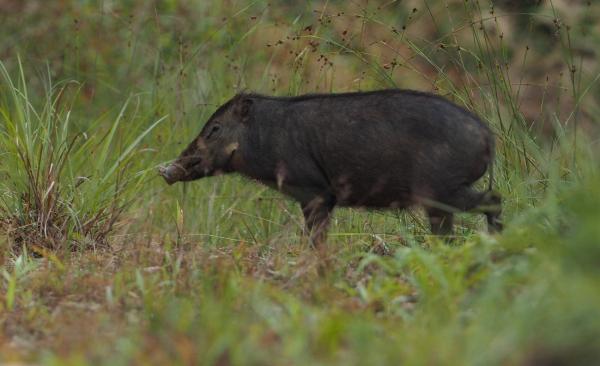
The Celebes Warthog (Sus celebensis) is a species found on the Indonesian island of Celebes. This medium-sized pig exhibits diversity in appearance, although it is currently considered a monotypic taxon.
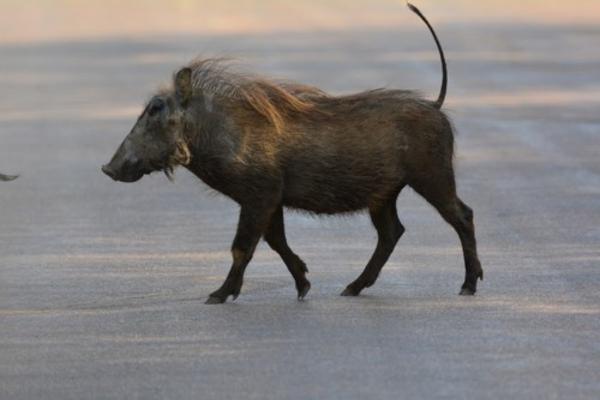
The Oliver's Warthog (Sus Oliveri) is a small species endemic to the island of Mindoro in the Philippines. It is highly sought after by hunters, resulting in its extreme rarity in its natural habitat.

The Philippine Warthog (Sus philippensis) is endemic to the Philippines. It is characterized by tufts of hair on the head and jaw. Males show greater sexual dimorphism, with larger tusks and skulls than females.
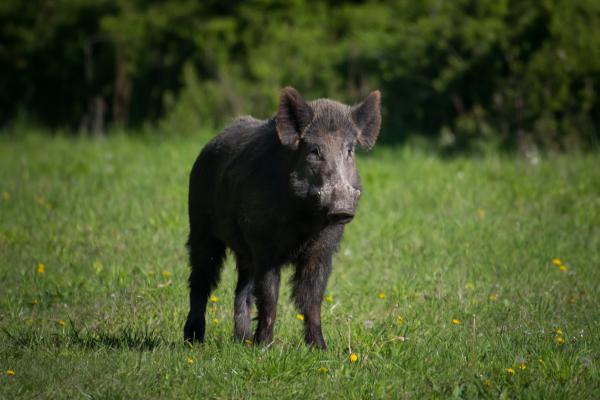
The wild boar (Sus scrofa), also known as the common wild boar or Eurasian wild boar, is native to much of Eurasia and North Africa and has been introduced to the Americas and Oceania. The species is one of the most widespread mammals in the world and the most widespread.
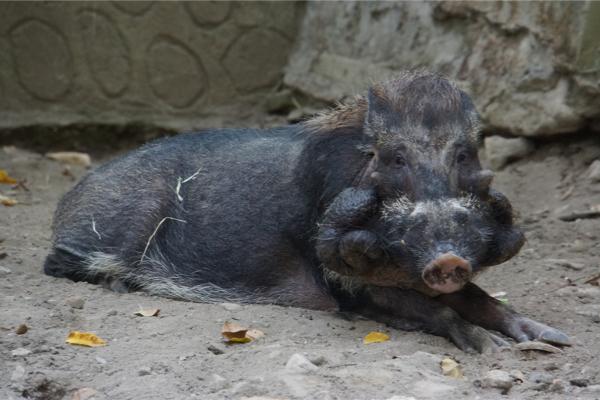
The Javan Warty Pig (Sus verrucosus) is an ungulate endemic to the islands of Java and Bawean, Indonesia. Its habitat is limited to protected areas such as the Leuweung Sancang Nature Reserve and Meru Betiri National Park.
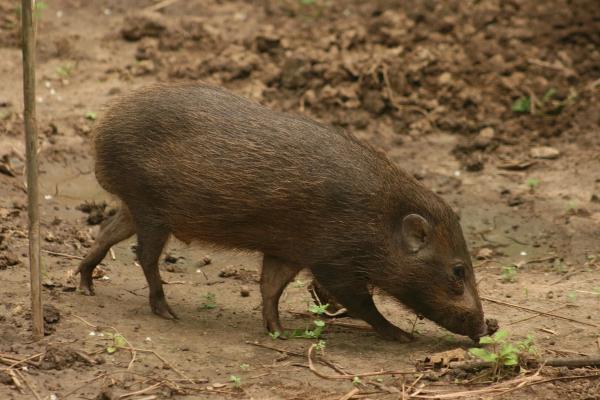
The Pygmy Pig (Porcula salvania) is a very small and endangered species and the only one in the genus Porcula. Currently, it is found only in Manas National Park, Assam.
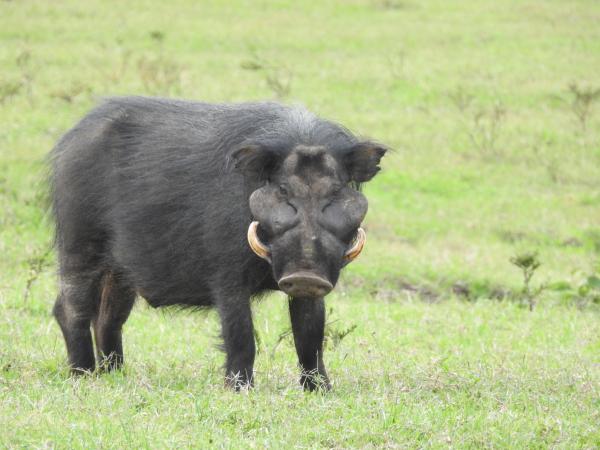
The Big Wood Pig (Hylochoerus meinertzhageni) is the only member of the genus and lives in African forests. Adults are 1.3 to 2.1 meters long and weigh 100 to 275 kilograms.
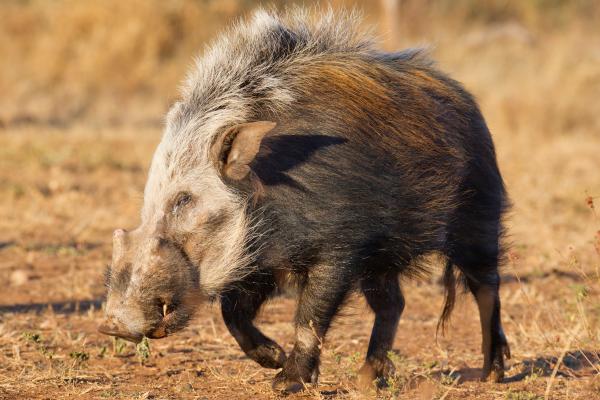
Potamochoerus larvatus is a species of pig that lives in forests and riverine areas of East and South Africa, with some populations in Madagascar. These wild boars are nocturnal animals, 66 to 100 cm tall at the shoulder, and can weigh up to 150 kg.
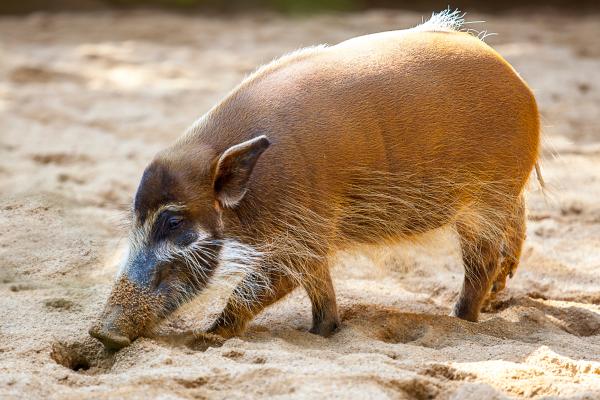
The Red River Hog (Potamochoerus porcus) is a species of pig that lives in the forests of Guinea and Congo, preferring to live near rivers and swamps. Its fur ranges in color from orange to reddish brown with characteristic white markings.
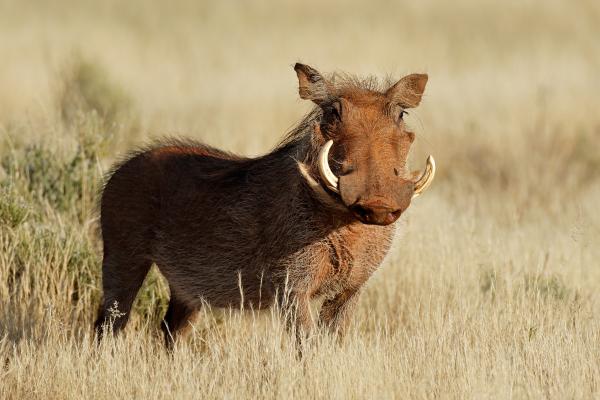
The African Warthog (Phacochoerus africanus) is a species of pig that lives in grasslands and savannas in sub-Saharan Africa. They are between 0.9 and 1.5 meters long and between 63.5 and 85 centimeters tall at the shoulder.
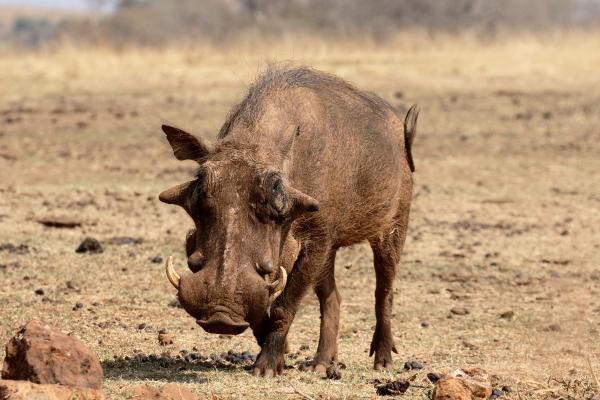
The Desert Warthog (Phacochoerus aethiopicus) is a hoofed mammal native to the Horn of Africa. There are two subspecies: the extinct Cape Warthog and the Somali Warthog. This strong animal can reach up to 125 cm in length and weigh up to 75 kg.
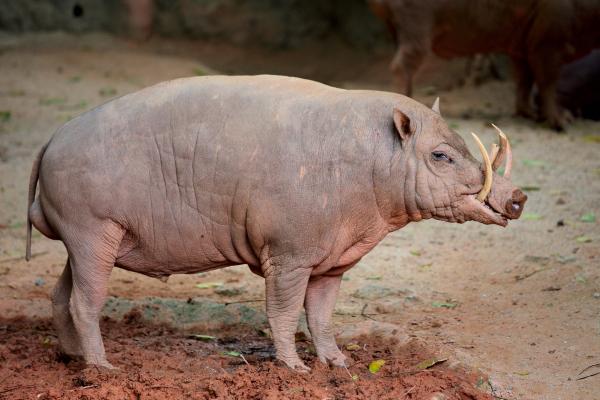
The Babyrousa babyrussa is a wild boar native to the Indonesian islands of Buru and Sula. Known as the Moluccan Babirusa, the animal lives in rainforests and riverbanks and is an omnivore.
Babyrousa bolabatuensis is endemic to the Indonesian island of Sulawesi. It was described as a subspecies in 1950 and promoted to species status in 2002. Currently, subfossil remains of this species have only been found in South Sulawesi.
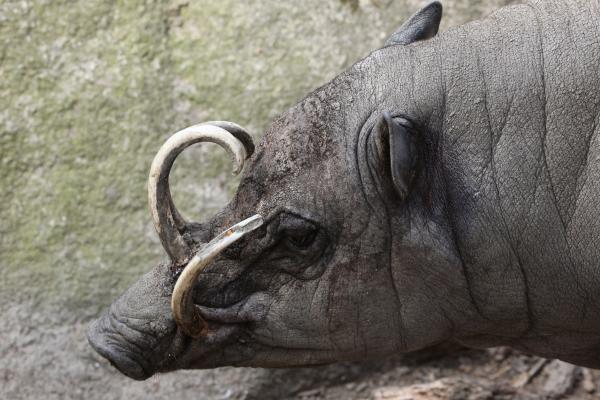
The North Sulawesi Babiru (Babyrousa celebensis) is native to Sulawesi. It has huge fangs that curve toward the forehead. The species is threatened by hunting and deforestation and can reach up to 110 cm in length and weigh up to 100 kg.
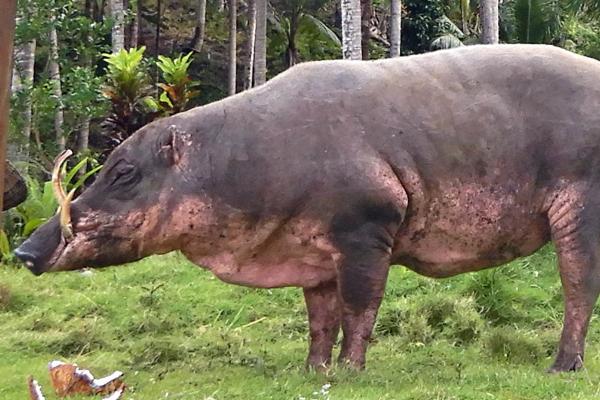
The Togean Babirusa (Babyrousa togeanensis), also known as the Malenge Babirusa, is the largest species of babirusa and is endemic to the Togean Islands in Indonesia. This omnivore feeds on roots, fruits, worms and invertebrates.
animal tags: suidae
We created this article in conjunction with AI technology, then made sure it was fact-checked and edited by a Animals Top editor.